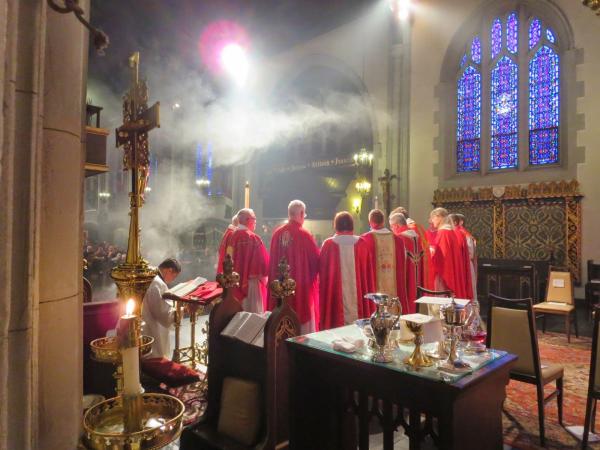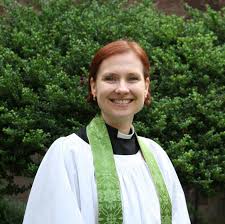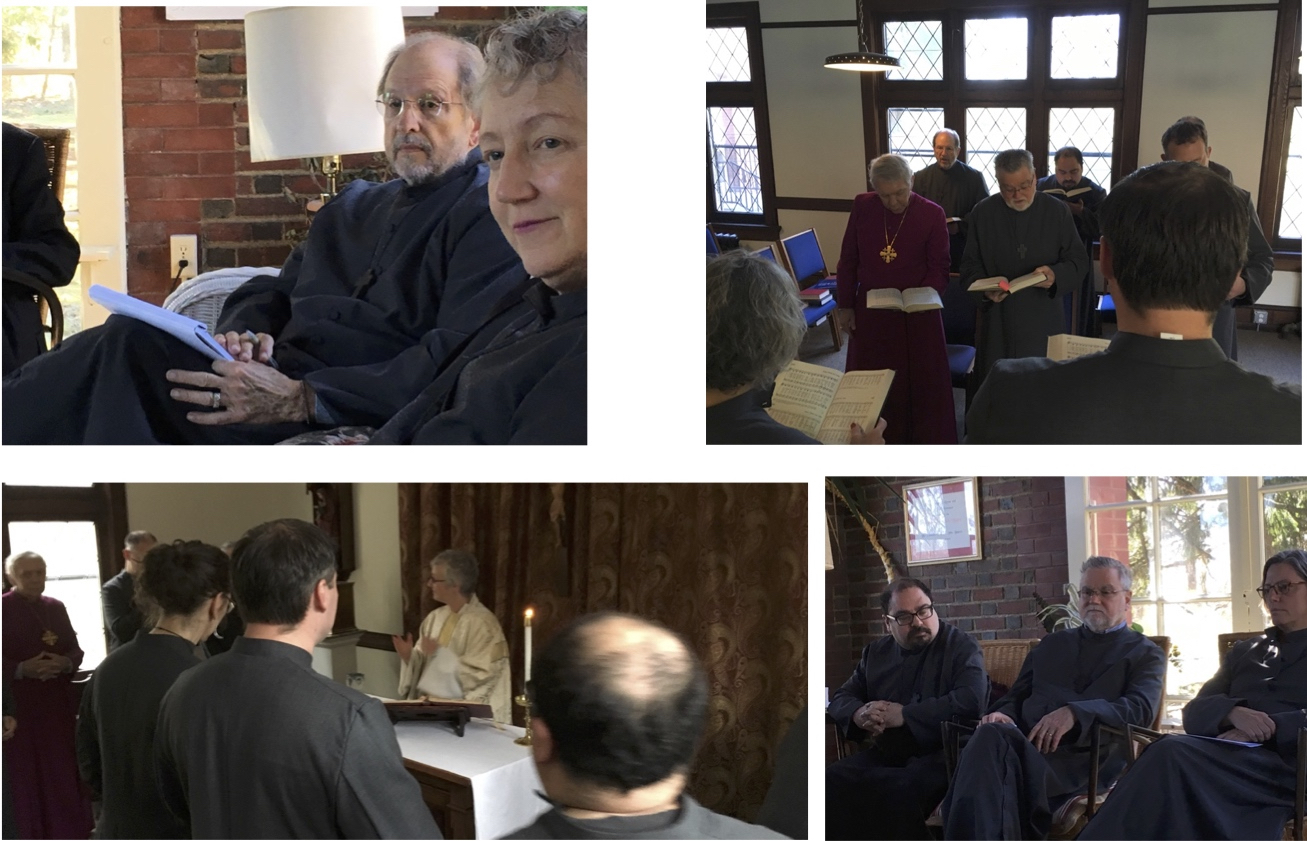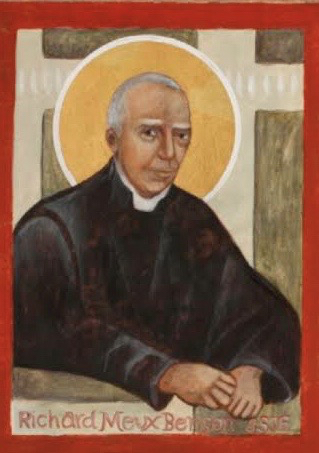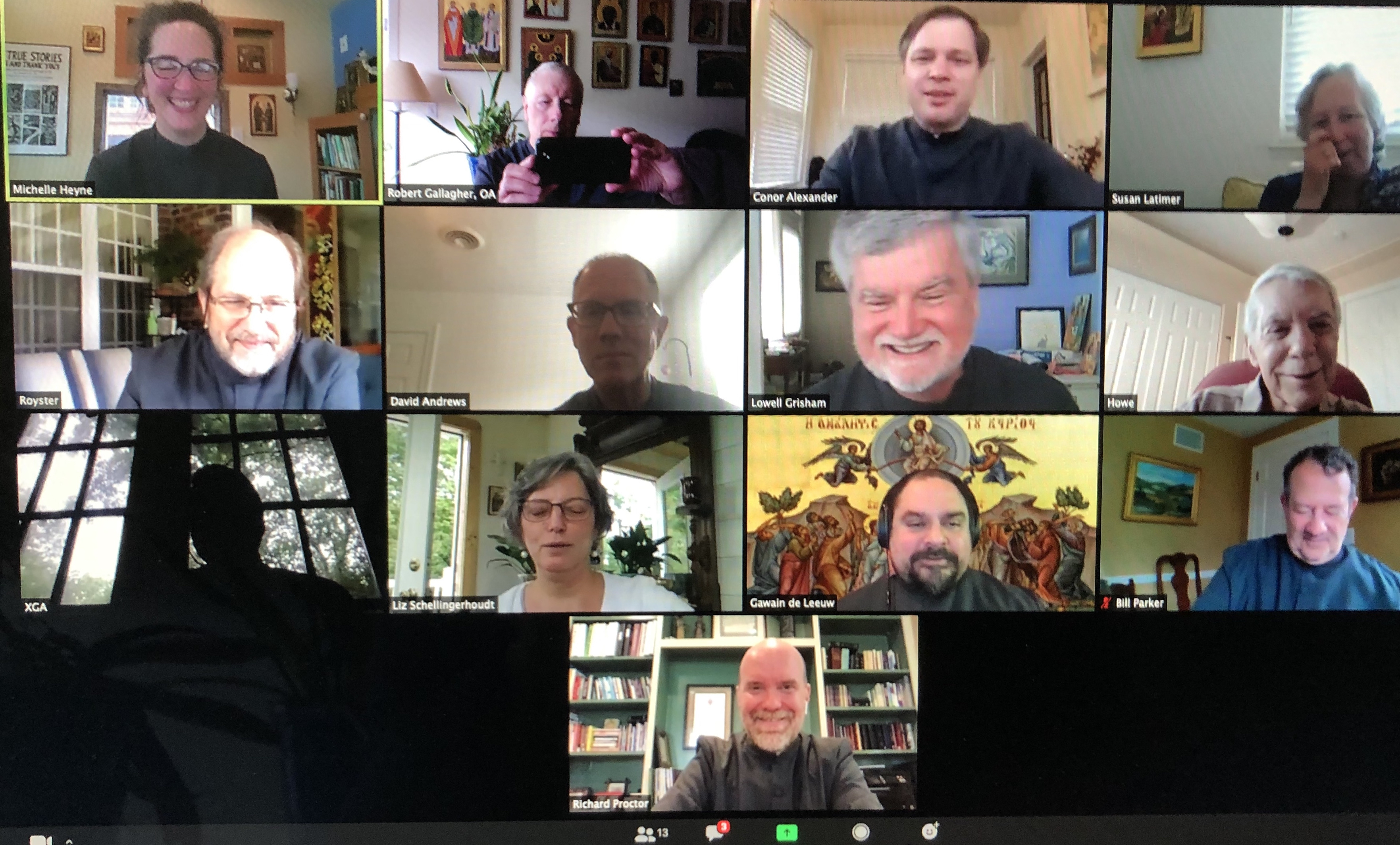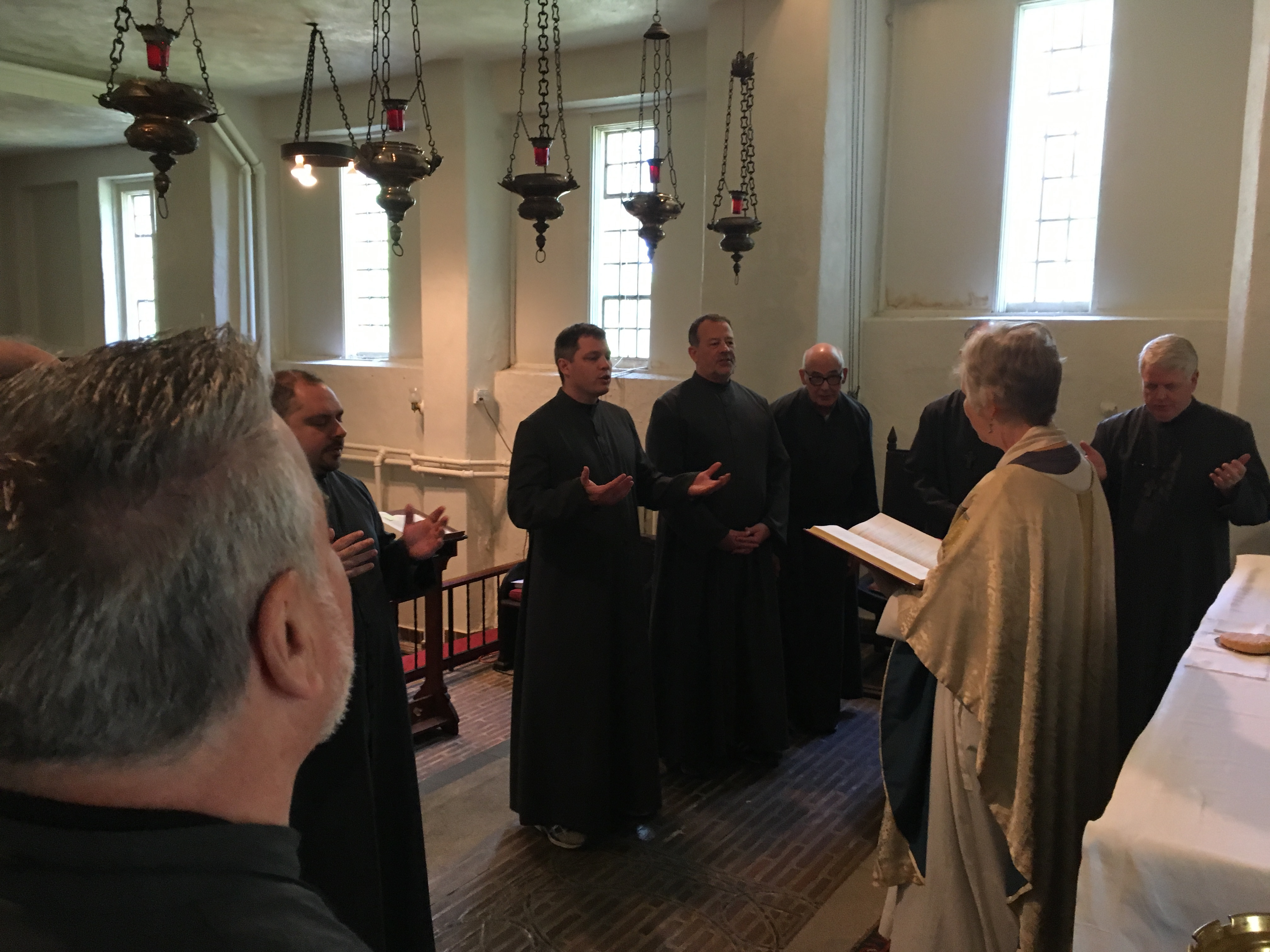 Faith to perceive: Remaining inseparable -- Parish development during the virus
Faith to perceive: Remaining inseparable -- Parish development during the virus
When you had fulfilled your dispensation for us,
and united things on earth with things in heaven,
you were taken up in glory, O Christ our God.
In no way parted,
But remaining inseparable, you cried out to those who loved you:
I am with you, and there is no one against you.
Saint Romanos the Melodist[i]
The pandemic has created a new experience of abandonment and connection. The Order of the Ascension just completed a survey of members. It was a way of checking-in on our experience in this odd season and to gather information to help us shape our life in the year to come. A couple of the questions had to do with what was happening in our dioceses and parishes. And there it was—during this time of isolation there was, in a new way, more connection. During a time of fear, illness and death the dioceses and parishes had stepped-up their connection. Bishops were in more regular contact with their clergy. Parish priests doing the Daily Office on-line had large numbers of people involved. Dioceses were providing help in supporting on-line worship and conversation with the bishop. Bishop’s were writing daily reflections. Some priests had weekly phone contact with members. Zoom was a kind of digital holy spirit knitting us together.
In no way parted,
But remaining inseparable
How to shape things
I’m responsible for the novitiate in the Order of the Ascension. I’ve got to figure out how the novitiate should be shaped during the time of this pandemic.
I need to hear what the novices need and what they think they need, what they’re up against as parish rectors, how they cope with their family needs. I want to hear them. And I also need to use my own judgment as to what is required for them to be formed, ready to be professed members, and better able to serve their parishes now and in the years ahead.
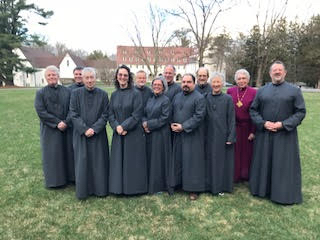 A conversation broke out among members about “returning to normal” or “opening up.” It was the same discussion taking place throughout the church. Do we use Prayer Books? Do they have to be sanitized? How about everyone bring their own copy. How about those dumbing-down Sunday bulletins in which everything is printed out? Maybe we can buy and send a Book of Common Prayer to every parishioner and they could bring it with them on Sunday and take it home.
A conversation broke out among members about “returning to normal” or “opening up.” It was the same discussion taking place throughout the church. Do we use Prayer Books? Do they have to be sanitized? How about everyone bring their own copy. How about those dumbing-down Sunday bulletins in which everything is printed out? Maybe we can buy and send a Book of Common Prayer to every parishioner and they could bring it with them on Sunday and take it home.
The conversation is a microcosm of what's happening in the country (world). What we have been calling lock-downs and opening up (notice the language) is now moving into the dynamics of individualism vs. community. The way scientists actually work, the distrust of experts, the way things emerge and change, and a dozen other factors--are seen in the Seattle news. A few law enforcement people saying they will not enforce, others handing out citations that have no weight, the county execs and attorneys taking away business licenses and threatening criminal legal action, right wingers in red hats yelling about freedom and left wing council members trying to tax Amazon and permanently house all the homeless while the bridge connecting where Michelle and I live is closed and there is no plan or tax for that.
It is very difficult to get our head above water in all this. Hard to get the kind of perspective that allows us to move forward with integrity (which isn't the same as "being right.")
In the Order there are some who need to make decisions about how to have "common" prayer in their parishes. And they will make those decisions, even if uncertain, and some parishioners will disagree. And some of those parishioners will get angry. Some may even leave the church.
It’s not easy.
How are we, a dispersed religious order, to live our Promise and charism? How is a parish church to live the Christian life? What does stability look like under these conditions? What change is necessary adaptation and development and what is fiddling and worthless? Which voices are to have weight and which set aside?
And, isn’t all this much the same for a parish church? Responsibility for pastoral oversight, listening to others and self, discerning what’s really important and attending to that while also managing the routine business of parish life.
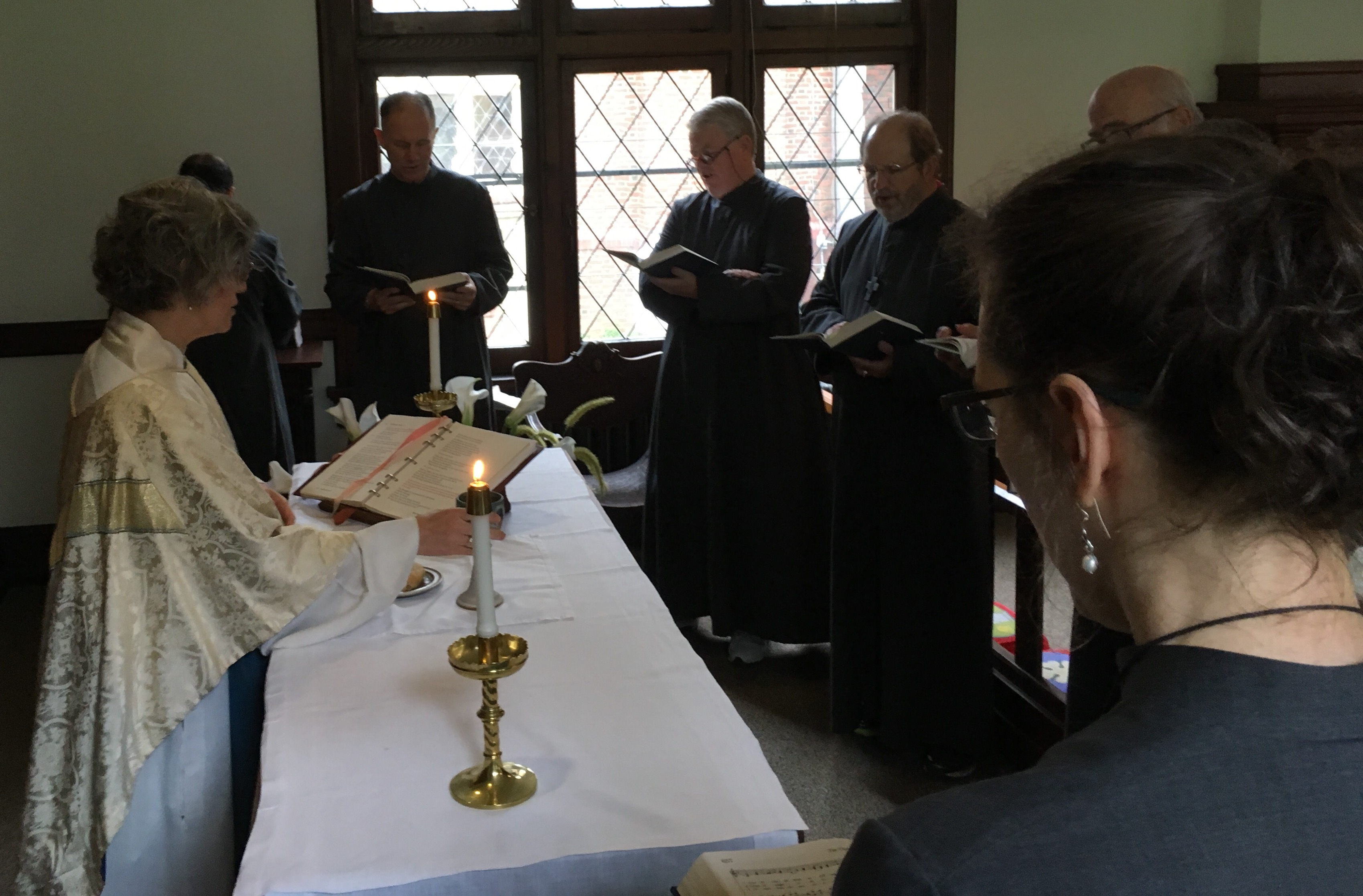 Perceiving the Body
Perceiving the Body
Perception is central to what comes next. Will our novices perceive the Lord’s presence when they feel overwhelmed and worn by the pressures? As they lead and serve their parishes, will they perceive rightly—the Body of Christ as well as the institutional demands, their call to offer pastoral oversight and strategy in shaping the parish as well as their need to maintain the routine business of the institution.
Then there’s this. Each of the novices is a parish priest. And each is trying to work out the same kind of issues within their parishes. How are they to shape their parishes with wisdom? What has the Holy Spirit here and now offered this particular parish? What is sound parish development in this context and time? How do I attend to the “normal” parish business, give attention to parish development (which is never really urgent even if critically important), and avoid spending too much time on the stuff that is urgent to someone but not really important to the parish’s life and work? And how do I not get caught in the trivia and time wasters. And, how do I keep my head above water and keep perspective when I’m so tired, irritable, frustrated, and overwhelmed?
As Formation Director I’m trying to work out more specific ways of understanding what has to be attained and the process to get there. For example, there are usually levels of engagement. We want members to grasp and be grasped by a Benedictine spirituality. How does that unfold for the novice? It may look like this,
The novice:
- Learns the Promise of stability, obedience and conversion of life. And begins to understand what is meant.
- Comes to assume that the Benedictine promise and spirituality always relates to what’s going on in their life. And the inner dynamics of the parish.
- Begins to apply the spirituality to their life and the parish. This may take the form of asking themselves what does stability obedience and conversion-of-life look like in the face of the virus?
- And a bit further along, when they go back and read the sections of the Rule of the Order of the Ascension, or Saint Benedict’s Rule, or Esther deWaal’s Seeking God – and do that reading with the pandemic in the background. And then strive to make connections about their inner life, and their responsibilities as priests and human beings.
- Someplace beyond that is actually making the connection. Seeing what stability looks like in this new, weird situation. At that stage they might sound a bit naïve or incompetent, but it is beginning.
- And someplace in there, in that very novice like place, the person is just about ready to be professed. I’d look for maybe another step or two further along. But we’re now in the arena
Maybe if I can think this through I’ll be able to help the novices get from the beginning to a new beginning.
And in each parish church the priest, in some manner, tries to do the same. While spiritual growth and Christian proficiency are the work of the Spirit with each person, the priest is called to cooperate with that. To offer the church’s pathways of grace. To instruct and guide. To nurture in the parish an apostolic climate that in subtle ways shape the way people see the circumstances, things and people of life.
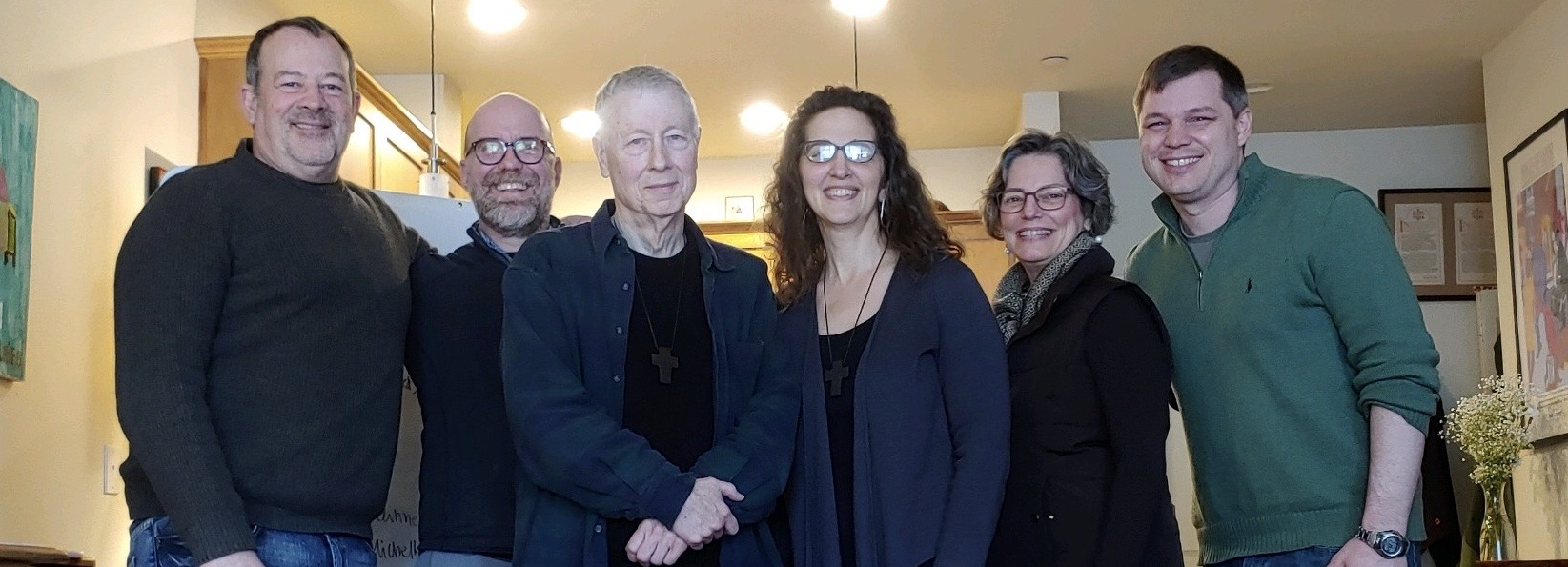 Living in the Rule
Living in the Rule
The Rule is a pathway of grace shared in the Order of the Ascension; this pattern of prayer, learning and action, is our way of keeping in tune with our Promise and Charism. It is our way of perceiving that he abides with his Church on earth, even to the end of the ages. A way of perceiving that comes as we live the Prayer Book’s pattern—Eucharist, Office, Personal devotion/reflection. A way of perceiving that finds him through stability, obedience and conversion of life. A way of perceiving that is sharpened as we listen to the ways in which our parishioners know God and live the Christian life.
The issue is: what will we allow to influence and shape us on a regular and frequent basis? Formation includes the development of habits of prayer and behavior that flow from who and whose we are in Baptism. Formation also includes the way we think and decide. We are called to live a pattern of life in which the Church 's sources of authority are engaged on a regular and frequent basis. Our task is to allow Scripture, Holy Tradition, the wisdom and knowledge of the larger human experience, and our own reason, to speak to our experience so we might discern and respond to the movement of the Holy Spirit in our lives. Time needs to be provided for the prayerful reading of the Scriptures, the Rule, and other spiritual works.
The Threefold Rule of the Church: All Professed Members will live within the Threefold Rule of the Church. We are each to be at the Holy Eucharist every Sunday, say the Office daily, and have a fruitful pattern of reflection/personal devotions. All Professed Members who are also priests-in-charge of parishes will establish, and fully participate in, that pattern in the common life of their parish. All who are not in a position of such responsibility will be supportive of efforts in their own parish to shape the pattern. Novices will establish the pattern in the first two months of their novitiate. From The Rule of the Order of the Ascension
For me, this feast day, offers an opportunity to shape my own perceiving. At 7:00 am I attended the sung Eucharist at St. Mary’s Times Square, later I’ll be with the Order on Zoom doing a noon office together, and at 5:30 pm will be Evening Prayer on Zoom with our Presiding Sister, Michelle Heyne, OA. During the day I’ll give some time to progressing the matters of this article by creating a list of objectives for the novitiate. I pray that the Spirit will guide.
And in each parish, we more or less live in the Rule of the Church—Eucharist, Office, personal devotions/reflection; the celebration of feast days, and observation of fast days and days of special devotion. The Prayer Book and ancient tradition provides the Rule. It is the priest who must nurture us to live it. And in that nurturing, shape our perceiving. A PDF "The Calendar of the Church Year and Sections of the Rule of the Order of the Ascension"
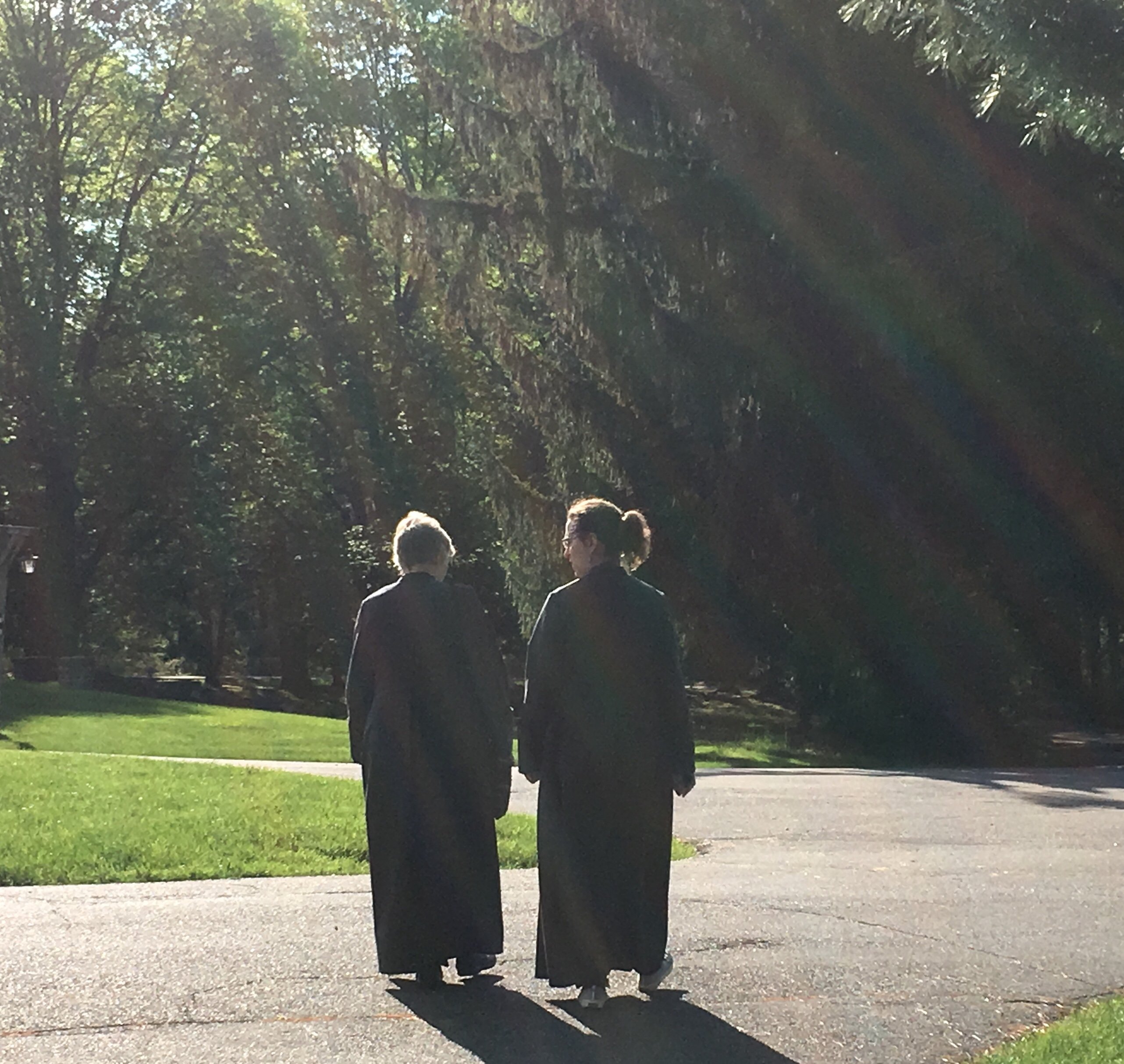 Joy
Joy
In Bishop Peter Eaton’s Daily Reflection on the Feast of the Ascension 2020 –
And here is something to think about. Why is it that, when, after the resurrection, Jesus returns to the disciples and the others, they are filled with fear, but when he leaves them decisively at the Ascension, they are filled with joy? One might have thought that it would have been the other way round. There are hints of joy in the resurrection appearances, but they are faint, and not as obvious as fear. But here there is joy at Jesus’ final departure.
And what is more, the disciples leave this last encounter for lives of more hardship, more difficulty, and, in almost every case, martyrdom. Why joy now?
Perhaps it was because the disciples knew at last, after all their experiences, as we know, that Jesus’ departure would mean not a new absence (as his death had been), but a new and more complete fulness, a more enduring indwelling. As a holy bishop once remarked, “by ascending into heaven Jesus did not get farther away from us, for heaven is not the sky, not a certain distance, but the mystery of God's omnipresence, the glory that he had even before the world was. That heaven, that mystery, that glory, are near us and within us, veiled to be sure and elusive to the senses, but accessible to us nonetheless. The union of heaven and earth was accomplished.”
Perception is central. If I turn my head just slightly and focus on something that was always there, but I had been overlooking, will I be filled with joy?
But remaining inseparable, you cried out to those who loved you:
I am with you, and there is no one against you.
For us in the Order we are always having to deal with the fact of being dispersed. We are in California and Seattle, in Florida and Ohio, in Georgia and Virginia, Delaware and New York, Arkansas and North Carolina. Each year we gather for a week and then we depart from one another. The task is to find joy in the departing and fullness in our common life and work.
In the parish we gather and scatter. We have a rhythm of renewal and apostolate. And there is joy to be had in the gathering and the scattering, in the renewing and the apostolic work.
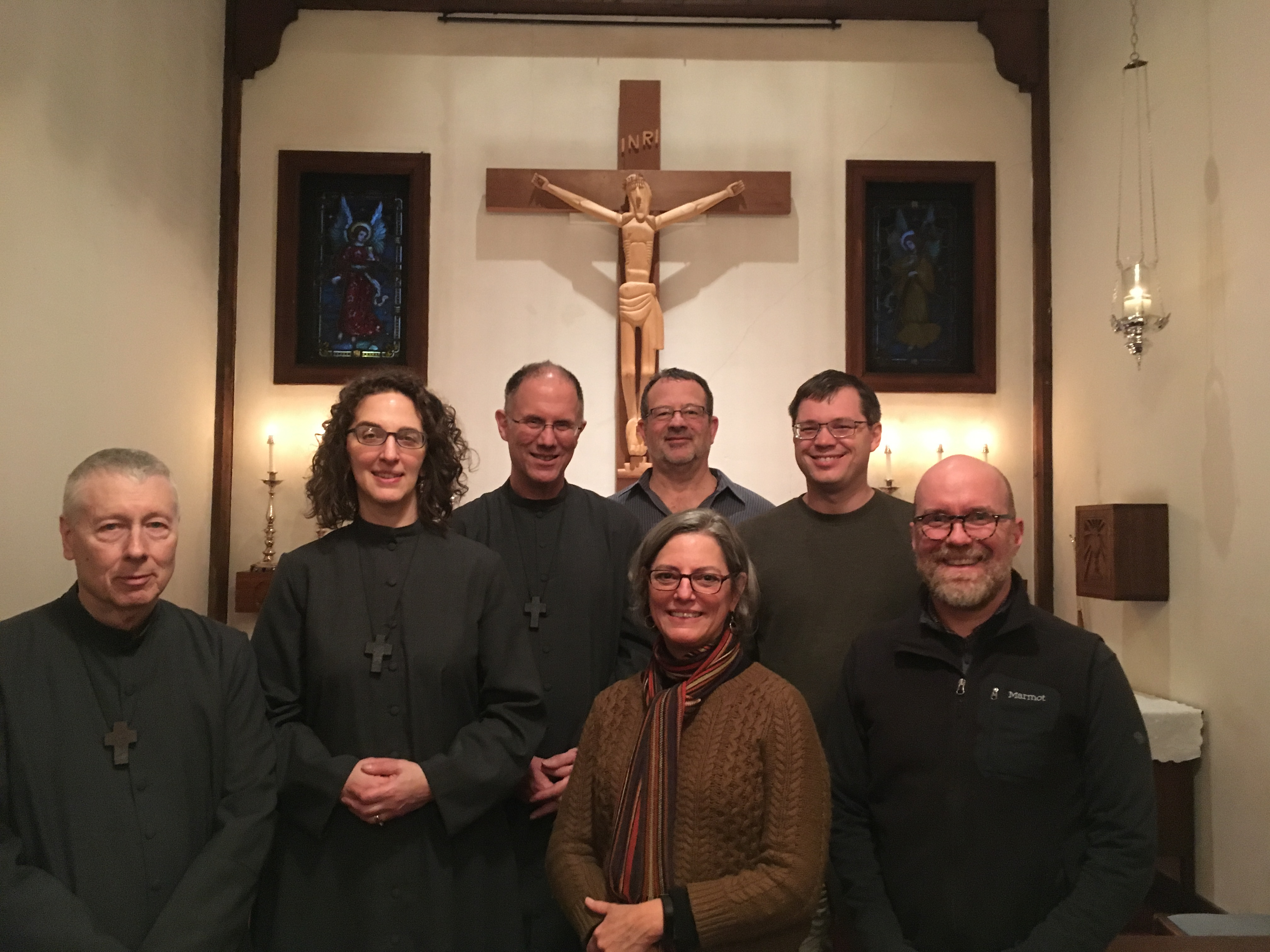 My work
My work
I keep returning to the Promise:
To seek the presence of Jesus Christ in the people, things and circumstances of life through stability, obedience and conversion of life.
It’s really a starting point for all of us. In these strange circumstances how are we to rightly perceive? To perceive that he abides with us. To perceive that he is present with us. To perceive the Body.
The novices need to jump though the hoops of participation, training and application in their parish life. Though in the present circumstances the hoops will be changed. So, they wiill need adaptation. There’s ascetical and OD theory they need at their fingertips. There are skills of group and organization development they need to routinely use. All the standard methods, skills and theory will be useful. The more the novice has them at hand, the easier it will be to adapt and apply them to this and future situations.
But back to the circumstances. Each novice has a set of conditions and settings to deal with. All have spouses. There are children—very young to adult. Some have a temperament calling for over-involvement and others under-involvement. Each has to better manage the same crap common to all humanity—our resentment and anger, our self-pity and fear. Then there’s this--being aware of your crap and overcome your crap are two different things. How can I be helpful in that; really?? Just like being the vicar at St. Elisabeth's!
They range in their natural affinity for theory and models of ascetical life and organization development. They live in different dioceses and states, which means that the context varies in how the pandemic is faced. They differ in their ability to manage the demand system created by the expectations and needs of parishes, families, friends and self. They, along with most parish clergy, seem exhausted. Yet also smart, dutiful, faithful, even brave, And this thing we face is just beginning.
All that impacts each person’s ability to perceive.
We perceive by means of the kaleidoscopic mirror of this life. This means that our ability to perceive is at once tyrannized by our expectations, and at war with them. James Baldwin, The Evidence of Things Not Seen, 1985
And I am to bring myself to the work.
When I was young, there were three pathways that called me—to be a teacher, to be a Marine, to be a deacon and then a priest. I tasted each and often wondered how they have aligned and integrated themselves within me. My guess is that there are several friends who could tell me how that has unfolded in my life. I’ve spent most of my years as a parish priest, a diocesan staff person, an instructor at seminaries, and a trainer of leaders for parish development. So, I bring to the novitiate who I am and the experiences of that life.
And at the moment I’m uncertain. Everything needs to be rethought and redesigned. I need to pray and think. I need to listen and decide. I need humility and grit. And then, my work is the same as that of the novices in their parishes, to listen carefully to those being served and to use my own knowledge and skills to guide them.
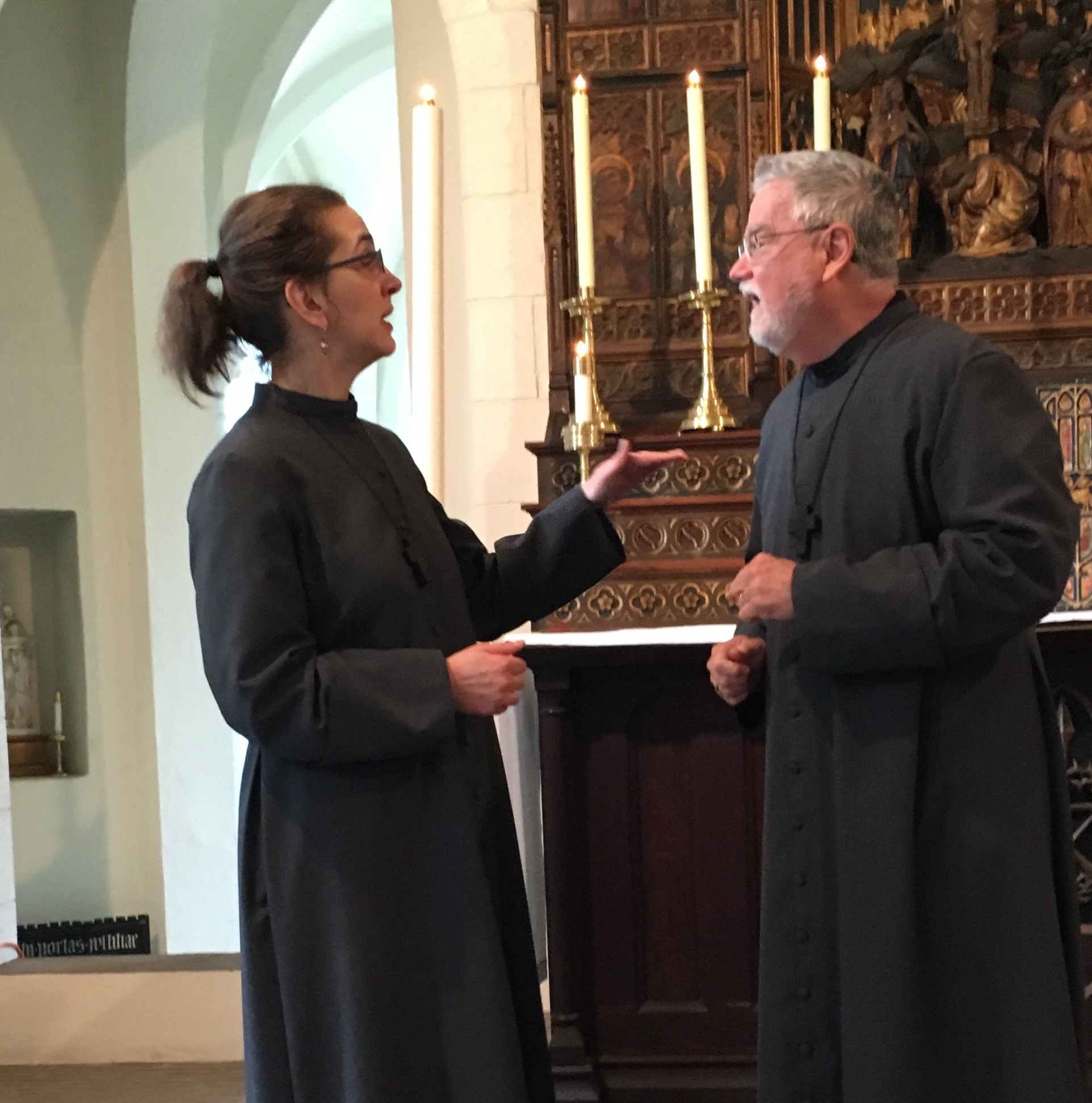 Our Presiding Sister, Michelle Heyne, OA wrote this to the novices, “The irony of the present time is that many of us are busier than ever but may be doing less that is truly important and developmental. As you know, the novitiate is not about checking boxes or spending specific blocks of time; it's about doing the work we've been given to do. That includes defining and progressing that work from out of our charism and our individual gifts and limitations, not from our feelings. It also means learning to be better instruments of that charism. None of that happens magically and, while we can't say, ‘here's THE way to progress this,’ we also have to accept the reality that progress in the religious life demands time and reflection.”
Our Presiding Sister, Michelle Heyne, OA wrote this to the novices, “The irony of the present time is that many of us are busier than ever but may be doing less that is truly important and developmental. As you know, the novitiate is not about checking boxes or spending specific blocks of time; it's about doing the work we've been given to do. That includes defining and progressing that work from out of our charism and our individual gifts and limitations, not from our feelings. It also means learning to be better instruments of that charism. None of that happens magically and, while we can't say, ‘here's THE way to progress this,’ we also have to accept the reality that progress in the religious life demands time and reflection.”
“Time and refection” she wrote.
In the Order of the Ascension, in each parish church, there’s a need to carve out time and reflection. There’s a need for leaders to manage their demand system in such a way that they can perceiveve rightly—what’s important rather than just what’s urgent, how Jesus Christ is abiding with this parish now. In the pandemic it is our task to see, in Bishop Peter’s words, “not a new absence (as his death had been), but a new and more complete fullness, a more enduring indwelling.”
rag+
On the Feast of the Ascension, 2020
[i] A hymn for the Feast of the Ascension by the Greek hymn-writer, Saint Romanos the Melodist. This was part of the Daily Reflection of Bishop Peter Eaton on Ascension Day
Postings on the inner life and the virus
You know, and they know, that they are offering their lives
Intercessions and the virus
Solitude
The mystery of the cross
Solitude in Surrey
We'll meet again
God's not indifferent to our pain
Endures all things
Becoming an Associate of a Religious Order
People Touch
Spiritual vitality and authenticity
The path of servanthood
Down into the mess
Missing the Eucharist
In you we live
Faith to perceive
Faith to perceive: In your great compassion
Turn everything that happens to account
We no longer know what to do
The Peace of God
Postings on Parish Development during the Virus
Power from the center pervades the whole
To everything there is a season
Faith to perceive: Remaining inseparable
Communities of love, prayer and service
 Friday, May 29, 2020 at 9:21AM
Friday, May 29, 2020 at 9:21AM 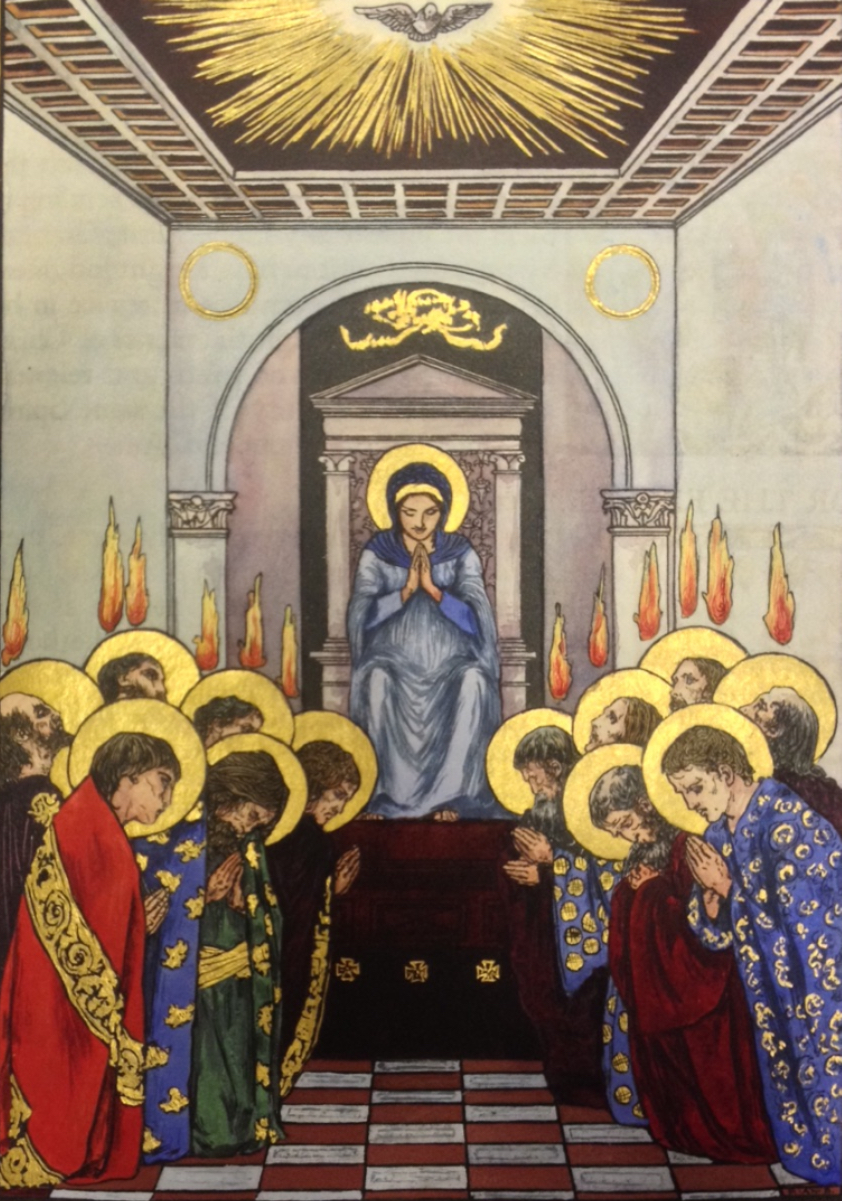 Jesus said to them again, “Peace be with you. As the Father has sent me, so I send you.”
Jesus said to them again, “Peace be with you. As the Father has sent me, so I send you.” 